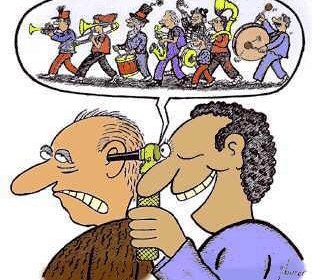According to Harvard Health, 50 to 60 million people in the U.S. suffer from tinnitus. The Mayo Clinic also notes 1 in 5 Americans can find themselves at some point in their lives experiencing ringing in their ears.
So What Is Tinnitus?
The American Tinnitus Association says tinnitus is when there is the perception of sound in one or both ears, or in the head. People often say they have a ringing in their ears, but you can also hear hissing, roaring, whistling, chirping, or clicking. Tinnitus can be ongoing or infrequent and the volume can also vary.
Stop the Ringing!
Be sure to check with your doctor first to see if any medications you’re currently taking might be the cause of the ear ringing. Your doctor may recommend you stop or reduce a particular medication, or switch to a different one. If medications aren’t the cause, there are several self-care strategies that can help manage tinnitus, these include:
- Earwax removal. Removing impacted earwax may help tinnitus symptoms.
Acupuncture. Several recent studies in the Journal of Research in Medical Sciences, Journal of Alternative and - Complementary Medicine, and the Brazilian Journal of Otorhinolaryngology have found that using acupuncture can be helpful in managing tinnitus.
- Noise suppression. Using a white noise machine, which produces sounds like rain or ocean waves, at bedtime can be effective in minimizing the internal ringing caused by tinnitus. Fans, humidifiers, dehumidifiers, and air conditioners in the bedroom may also be helpful.
If you’re tired of tinnitus and none of the above strategies have helped, you may want to talk with your doctor. There could be an underlying blood vessel condition, which might require medication, surgery, or another treatment to address the internal ringing.

